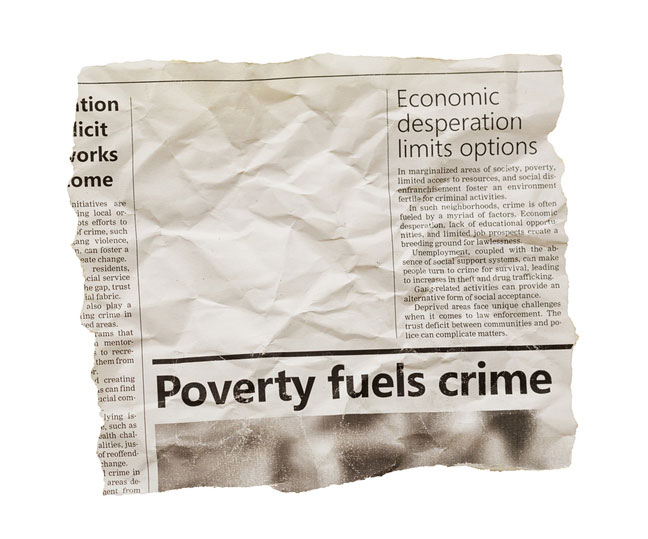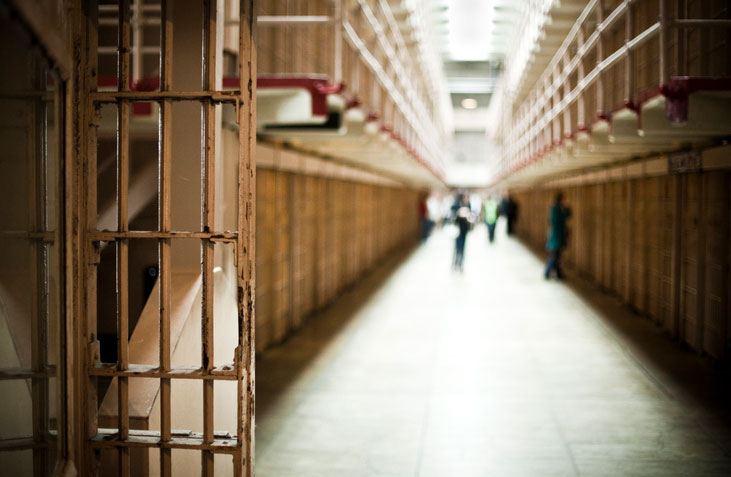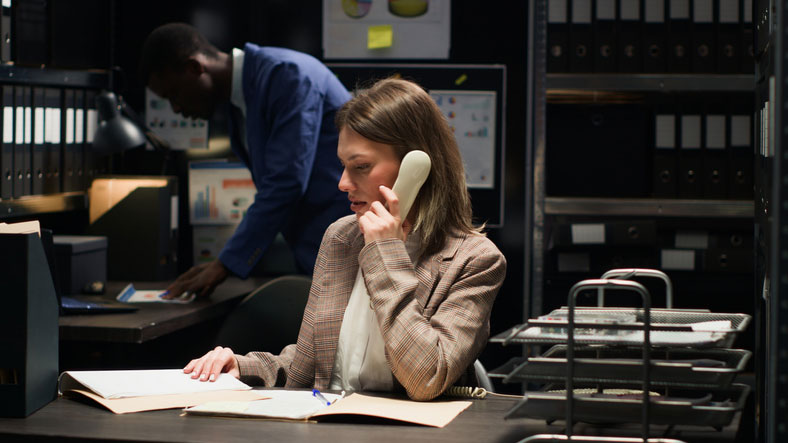Written by Sam Medley

Social work and criminal justice go hand-in-hand here in Florida. The victims of crimes need help coping with trauma and navigating the maze that is Florida’s state and municipal criminal court systems. Social workers can do both. And more than a fair share of crimes here have some root in mental illness, substance use disorders, poverty, and histories of abuse — things social workers are equipped to address.
It’s a struggle to integrate person-first social work principles into the courts and policing practices. While Florida shares in that struggle, the state has made some important strides.
- In Orange County, police officers can take people struggling with mental illness and substance use disorders to the Central Receiving Center for help instead of taking them to jail. In the 20 years it’s been open, the Center has served almost 100,000 people.
- In 2023, the Miramar Police Department hired its first on-staff social worker to provide crisis intervention services. Other departments in Florida are following suit.
- And in Orlando, victims involved in criminal trials don’t have to find help on their own. The State Attorney’s Office for the 9th Circuit has an in-house crisis counselor. Officials are hoping to expand this groundbreaking program.
But these efforts aren’t the only game in town. Advocacy organizations, law offices, and behavioral health centers all over Florida do their part to bring dignity and equity to the criminal justice system. By getting into forensic social work, you can help them on that mission.
What Do Forensic Social Workers Do in Florida?

Forensic social workers serve people that are involved in some way with the Florida courts and the broader criminal justice system — that includes victims, witnesses, criminal defendants, the incarcerated, and even entire communities impacted by crime.
But no matter who they serve, forensic social workers typically have the same core duties:
- Advocating for client rights in and out of court — especially for children, seniors, and others who may not be able to advocate for themselves
- Connecting clients to lawyers, emergency shelter, mental health providers, and other resources that can help them in the short- and long-term
- Helping clients file documents with courts, social service agencies, and other organizations
- Coordinating between court officials, legal teams, and other parties involved in court proceedings
- Serving as witnesses in court and making sentencing recommendations
- Providing counseling and crisis intervention services
- Training other professionals (lawyers, court officials, law enforcement officers, etc.) about de-escalation, mental health, substance use disorders, and other social work-related topics
However, the specifics of these duties largely depend on who the social worker is serving. Those working for the Florida Department of Corrections serving the incarcerated population at the Dade Correctional Institution ensure inmates get the mental health counseling afforded to them or otherwise mandated by the courts. Social workers with the Florida Department of Children and Families (DCF) make sure family courts, foster care programs, and other organizations act in the best interest of the children involved.
Entering Forensic Social Work in Florida With a BSW

Forensic social work requires quite a diverse skill set. You’ll need to be compassionate, resourceful, detail-oriented, and pretty well-versed in Florida state law. That might make it sound like an MSW is absolute requirement for social work roles in the criminal justice system, that’s not always the case. In fact, some of the most rewarding frontline forensic social work positions in Florida only call for a BSW.
While any CSWE-accredited Bachelor of Social Work in Florida will cover topics applicable to the kind of advocacy, case management, and referral work involved in forensic social work, a forensic focus in your BSW, minor, or concurrent certificate in criminal justice can start building your expertise.
CSWE identifies just nine accredited BSW and MSW programs in the country that offer a forensic speciality option. One of those is the BSW in Criminal Justice and Social Work at Florida State University.
Even without a specialty track, BSW programs teach basic principles and skills deeply applicable to forensic social work:
- Case management and connecting clients to needed services
- Individual and group counseling
- Basic interview techniques
- Professional ethics and laws
- Referrals
- Human behavior and psychology
- Serving people with substance use disorders, mental illnesses, and trauma
You can also talk to your fieldwork advisor about finding a placement at a legal advocacy agency like Disability Rights Florida, or even one of the dozens of correctional facilities in the Florida Department of Corrections.
Jobs for BSW-level Forensic Social Workers in Florida

You won’t necessarily find a lot of open positions for forensic social workers specifically. That’s because forensic social workers actually hold an impressive number of different job titles.
Here’s a few you can take on with a BSW:
- Victim advocate
- Victim witness specialist
- Child welfare advocate
- Corrections case manager
- Forensic case manager at a mental health or substance use disorder treatment center
- Immigration case manager or immigration detention case manager
Despite the different titles, your duties at this level will likely revolve around meeting with clients, assessing their needs, and connecting them to community resources.
Specialized MSWs and MSW/JD Dual Degrees Offer Ideal Preparation for Social Workers in the Florida Criminal Justice System
Any direct clinical counseling job that involves assessment, clinical diagnosis, and talk therapy is going to require a Master of Social Work (MSW) and a Licensed Clinical Social Worker (LCSW) credential through the Florida Board of Clinical Social Work, Marriage & Family Therapy and Mental Health Counseling.
Outside of clinical practice, the Certified Master Social Worker (CMSW) credential is an option for those looking for high-level mastery of mezzo- and macro-level social work skills.
While a specialized MSW in forensic social work, law, or criminal justice isn’t a hard requirement for working in the courts, it can certainly help to take legal courses and get a relevant practicum working in the courts as part of your MSW program.
In perfect alignment with the intersectional focus of the school, you’ll find a natural lean toward criminal justice concerns in the MSW at the Florida Atlantic University, College of Social Work and Criminal Justice. And for the most ambitious would-be forensic social workers, you’ll also find duel degree options that combine an MSW with a JD (Juris Doctor, or Doctor of Law), such as the program offered through Florida International University.
Online schools offering CSWE-accredited programs make even the rarest specialty accessible to students in Florida.
Clinical MSW Specialization: A Pathway to LCSW Licensure and Clinical Counseling Roles in the Florida Criminal Justice System
Mental health services are important to every aspect of Florida’s justice system. But whether you want to help victims process trauma, bring mental health services to inmates stuck in cycles of crime, or serve any other vulnerable group, earning the Licensed Clinical Social Worker (LCSW) is in the cards for you.
In Florida, LCSWs are the only type of social worker who can legally diagnose and treat complex mental illnesses like PTSD, bipolar disorder, and depression. To become an LCSW, you’ll have to:
- Earn an MSW and take classes on topics like psychopathology, human behavior, and advanced therapeutic techniques.
- Complete 1,500 hours of supervised post-degree clinical experience.
- Pass the Association of Social Work Board’s (ASWB) clinical social work exam.
Fortunately, because so many Florida social workers who pursue MSWs plan to become LCSWs, most of the state’s MSW programs offer clinical degree specialties.
Forensic Social Work Jobs for LCSWs in Florida

Equipped with an MSW, LCSW license, and the ability to provide advanced treatment for mental illnesses, you’ll be qualified for high-level forensic social work positions like:
- Correctional mental health specialist or therapist
- Victim therapist, especially for victims of violent, psychologically-damaging crimes like domestic violence and sexual assault
- Youth offender intervention specialist
- Family intervention specialist
- Police social worker or crisis response specialist in most jurisdictions
Because of their expertise, LCSWs are also often the directors of clinical mental health programs at correctional facilities within the Florida Department of Corrections and organizations like the Victim Service Center of Central Florida.
MSW Specializations for Macro and Mezzo Roles: Becoming a Community Leader in Florida and Earning the CMSW
Clinical and direct practice positions are integral to making justice more just, but they’re not your only option in Florida. The state’s court system and victim support network need well-informed professionals to oversee programs, craft impactful policies, and drive change on a social level.
This administrative, community-oriented type of social work is called macro social work—and Certified Master Social Workers (CMSW) are experts in it.
Becoming a CMSW in Florida is purely voluntary. Unlike the clinical license, it does not grant legal authority in a defined scope of practice. It’s better thought of as an advanced credential for official acknowledgement of mastery in non-clinical social work.
To qualify for the CMSW, you’ll need to:
- Earn an MSW and take classes on administration, supervision, program planning, research, community organization, and similar topics
- Complete three years of supervised fieldwork, two of which must be completed after graduation
- Pass the ASWB’s Advanced Generalist exam
To prepare for CMSW certification, any CSWE-accredited clinically-focused MSW will include the basic qualifications, while purpose-built non-clinical generalist MSW programs with advanced generalist social work, administration, or research tracks will certainly do the trick. While these specialties aren’t as common as clinical specialties in Florida, they’re by no means rare.
Forensic Social Work Jobs for CMSWs in Florida
CMSWs don’t have any extra level of legal authority. However, because they’ve gone through a rigorous training process, employers often favor them for administrative and community-oriented positions. In forensic social work, this includes:
- Youth, family, or juvenile program director
- Community outreach manager
- Community educator
- Victim or inmate services coordinator or director
- Transitional or halfway house manager
- Program evaluator and researcher
In these positions, CMSWs often oversee and work with diverse teams of mental health professionals, law enforcement officers, lawyers, and other social workers. Just as importantly, they’re well-versed in all of the legal aspects of running a social service program. When you’re serving victims, vulnerable children, and other groups, that kind of expertise can be especially valuable.
Certifications That Can Help You Refine Your Skillset

MSW programs in Florida can give you the advanced yet adaptable toolkit you need to guide people through the pitfalls of the criminal justice system. But your education doesn’t have to end there. By getting certified as a forensic social worker through a professional organization, you can take a deep dive into the specifics of your new career and get ready for high-level positions.
Certification requirements vary, but you typically have to be a current social work student or have a social work degree to qualify. You can start by exploring certifications offered through the:
- National Organization of Forensic Social Work (NOFSW). The NOFSW offers a virtual Forensic Social Work Certificate program that helps social workers tailor their skills to a wide range of criminal justice work environments.
- National Board of Forensic Evaluators (NBFE). This organization offers certifications in clinically-focused areas like forensic mental health evaluation, child custody evaluation, psychometrics (measuring cognition and/or psychological state), and performing psychological evaluations for first responders. You’ll need to be an LCSW to qualify for these classes.
- National Association of Forensic Counselors (NAFC). As the country’s first forensic counselor certification board, the NAFC offers a wide range of certifications in areas like sex offender treatment, juvenile treatment, cognitive behavioral therapy, forensic interviewing, substance use disorders, and more.
While certification may seem like an extra step, if you become an LCSW or CMSW, you’ll have to complete continuing education hours to renew your license. Certification programs can help you meet that requirement while you develop valuable niche skills in forensic social work at the same time.
Where To Find Forensic Social Work Jobs in Florida

No matter where your drive for equitable, transformative justice takes you, there are plenty of organizations in Florida that need forensic social workers. If you’re interested in corrections social work, the Florida Department of Corrections is a good place to start. For victim-serving roles, you can turn to the victim service departments of state and county attorney offices, courts, and law enforcement agencies.
But aside from those more general government employers, you can also find opportunities through:
- The Department of Children and Families’ Refugee Services Program
- Pro bono legal service providers listed with the Florida Bar
- Major healthcare networks that work with the Department of Corrections
- Local, county, and state police departments
- Nonprofit legal advocacy organizations like the Florida Justice Center
- Shelters and other community-based organizations that serve immigrants and the victims of domestic violence
- Mental health and substance use disorder treatment centers that serve people committed under the Baker Act and similar laws
- Florida State Hospitals which serve people deemed incompetent to stand trial and others involved in the legal system
By working with these organizations and more, you have the chance to make people feel whole and safe again, to end cycles of violence, and to hold the justice system accountable on a systemic level.
